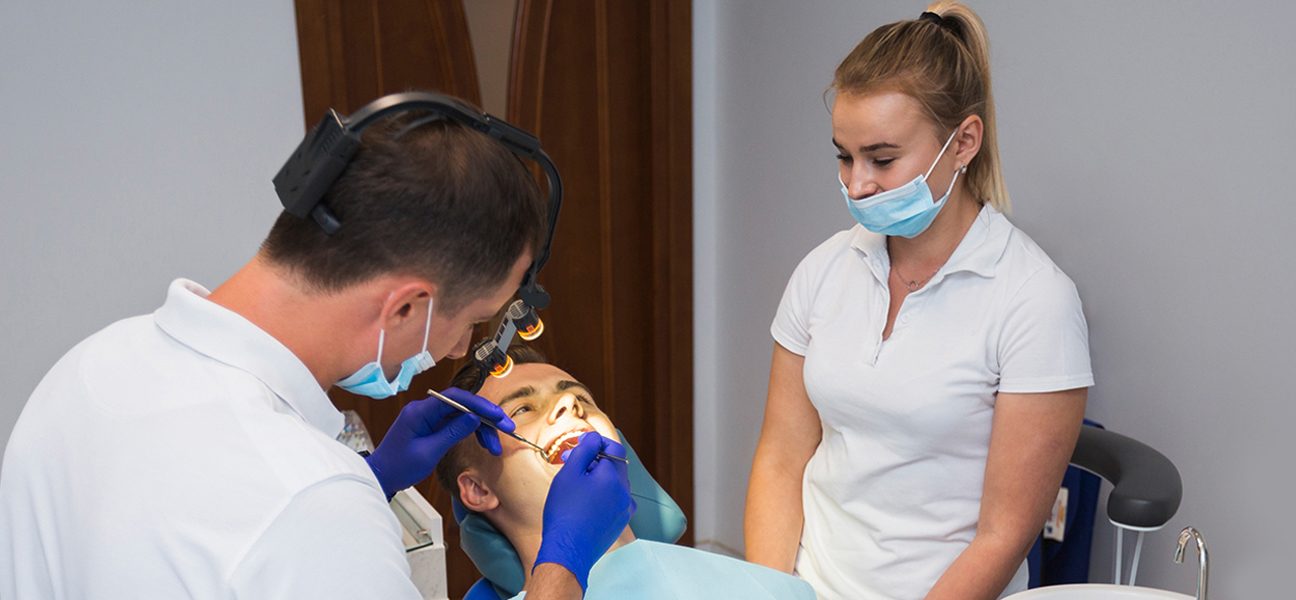Why Do Teeth Chip? Common Causes and How to Prevent Them
You’re munching on something crunchy when snap! You feel a sharp edge inside your mouth. It’s not the snack, it’s your tooth. Sound familiar? Many people ask, why do teeth chip so easily. While it might seem like bad luck, chipped teeth often result from everyday habits, weakened enamel, or hidden issues you might not notice.
1. Everyday Habits That Hurt: The Role of Lifestyle Choices
Sometimes, the little things you do every day add up to big problems for your teeth. Habits like biting your fingernails, frequently chewing on ice cubes, or utilizing your teeth to open bottles or packaging might seem harmless at the moment. But over time, they wear down your enamel, making teeth more vulnerable to chips and cracks.
Here are a few everyday habits that quietly chip away at your dental health:
- Chewing hard objects: Ice, pens, or even popcorn kernels can stress your teeth.
- Using teeth as tools: Opening packages or biting off tags puts unnatural pressure on your teeth.
- Nail biting: This repetitive pressure can create tiny fractures in your enamel.
These actions cause small weaknesses that grow over time. Before you know it, a simple bite into something hard can cause your tooth to chip. Being mindful and replacing these habits with safer alternatives can protect your smile significantly.
2. Weakened Enamel: When Protection Breaks Down
Your tooth enamel is that hard, outer shell resposible to guard your teeth. It’s nature’s armor against daily wear and tear. But enamel isn’t invincible. Over time, factors like acidic foods, drinks, or certain health conditions can erode this protective layer.
Some common causes of enamel weakening include:
- Eating acidic foods and drinks: including citrus fruits, soda, and even some sports drinks, can soften enamel.
- Overbrushing: Brushing too hard or making use of a hard-bristled toothbrush can wear down enamel.
- Acid reflux: Stomach acid reaching the mouth gradually wears enamel away.
Once enamel thins, teeth lose their natural strength and are more likely to chip, even with regular chewing. If you notice increased tooth sensitivity or discoloration, it’s a sign to take action. Addressing enamel erosion early helps prevent more serious damage.
3. Hidden Culprit: Bruxism (Teeth Grinding)
Grinding or clenching your teeth—especially at night—is a sneaky cause of chipped teeth. Bruxism affects many people without them realizing it, but the consequences can be severe. The constant pressure and friction put immense stress on your teeth.
Signs of bruxism include:
- Jaw soreness or pain
- Frequent headaches, especially in the temples
- Flattened or chipped tooth edges
Over time, grinding causes tiny cracks and chips that weaken the tooth structure. Fortunately, a simple night guard can shield your teeth from this damage while you sleep. Visiting a dentist in Mesquite, TX, for an evaluation can help diagnose and manage this condition before it leads to bigger problems.
4. Accidents and Injuries: Unexpected Trauma to the Mouth
Sometimes, chipped teeth happen because of sudden, unexpected events. Sports injuries, car accidents, or even slipping and falling can cause your teeth to crack or chip. The impact can be forceful, and teeth can suffer damage that isn’t always obvious at first.
Why mouth protection matters:
- Wearing a mouthguard during contact sports can absorb shocks and reduce the chance of injury.
- Falling or accidents may cause microcracks that slowly worsen over time.
- Immediate dental care after trauma prevents infection or further damage.
If you experience a blow to the mouth, even without immediate pain, it’s important to see a dentist. Early diagnosis can catch hidden cracks or chips and stop them from getting worse.
5. Dental Conditions and Restorations That Fail
Not all chipped teeth are caused by external forces. Sometimes, the problem lies within existing dental work or genetic factors. Large fillings or old crowns can weaken the remaining tooth structure, making it prone to breaking. Additionally, some people have inherited conditions that make their teeth softer or less resilient.
Key points to know:
- Large fillings: Over time, these can loosen or crack, reducing tooth strength.
- Genetic enamel disorders: Conditions like amelogenesis imperfecta can cause brittle teeth.
- Bite problems: Misaligned teeth create uneven pressure, increasing the risk of chipping.
If you have dental restorations or notice frequent chips, discuss these risks with your dentist. Modern solutions, including dental veneers in Mesquite, TX, can help protect and restore damaged teeth, giving you both function and beauty.
Final Thoughts
Chipped teeth can be painful and inconvenient, but understanding why teeth chip helps you take control. From avoiding bad habits to seeing your dentist regularly, prevention starts with awareness. At Clean Dental, we’re here to keep your smile healthy and strong. Don’t wait for the next chip—book your checkup today and protect your teeth for the long haul.

